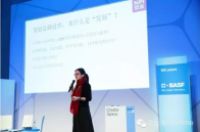
新闻稿 二零零七年三月二日
无国界医生欢迎一种新型、数据公开、方便使用的抗疟疾综合疗法推出市场
国际医疗人道救援组织无国界医生欢迎一种新型、方便用家、售价较廉宜的二合一青蒿琥酯-氨酚喹抗疟疾药片推出市场。这种又名ASAQ的治疗方案,是非营利的“被忽略疾病药物研发组织(DNDi)”与法国药厂赛诺菲-安万特合作研究的成果,显示药物研发能够在公共领域、毋需专利的情况下进行。
世界卫生组织推荐使用以青蒿素为基础的综合疗法,来治疗全球大部份地区的疟疾。但这种能挽救生命的治疗,供应仍然不足 --- 二零零六年全球仅获供应不到八千万人次的疗程,尽管疟疾个案每年最少有四至五亿宗。去年,无国界医生就以青蒿素/氨酚喹治疗了一百七十万名病人,使用的是该两种药的单药药片。
无国界医生的医疗队去年在非洲乍得治疗疟疾病人近八万名,医疗统筹Michel Queré说:“在一颗药片中结合两种药物是一大改进,病人服用起来较为容易。” 他指出:“以儿童为例,三天疗程里若每日只需服用一颗药片,而不是四颗药片,这会增加服药的依从性,进而减低出现耐药性的风险。”
青蒿素综合疗法难以更广泛为人使用的一个主要障碍,是它们目前的价格。是次推出的新型固定剂量复合制剂的抗疟药ASAQ,儿童疗程售价将少于人民币四元,而青年与成人疗程的售价将少于人民币八元,较成人分开服用药片要便宜百分之四十至五十。但是售价有必要继续下调,令此疗法能在任何有需要的地区广泛使用。
无国界医生国际议会主席符尼尔医生表示:“ASAQ是由被忽略疾病药物研发组织及其伙伴合作推出市场的首项药物,它的出现,证实专注低收入及被忽略地区病人需要的医药研发,这一新取向确实可行。由于这个药物没有专利保护,它给被忽略疾病的研发提供了一个大有可为的研发模式。事实上,正因为这种药物没有专利,能容许多个生产来源,保证了价格竞争以及药物能有足够供应。”
无国界医生即将开始在青蒿琥酯和氨酚喹综合疗法有高疗效地区的所有项目,使用这种固定剂量复合制剂,取代现时使用的分开药丸。ASAQ是继复方蒿甲醚/苯芴醇后,第二种推出??场的以青蒿素为基础的二合一药丸。当前还有需要研发更多的综合疗法。
被忽略疾病药物研发组织
被忽略疾病药物研发组织是一个独立、非营利的药物研发组织,于二零零三年由五个公营研究机构成立,包括巴西奥斯瓦尔多科鲁斯基金会、印度医学研究理事会、肯尼亚医学研究院、马来西亚卫生部与法国巴斯德研究所,以及无国界医生。
ASAQ是被忽略疾病药物研发组织首种研发成功的药物。组织的目标旨在研发创新、改良及适合在资源贫匮地区使用的药物,治疗被忽略疾病,包括疟疾、利什曼病(黑热病)、非洲锥虫病(昏睡病)以及南美锥虫病。组织目前有二十二个研究项目。
无国界医生是全球最大的非政府国际医疗人道救援组织。自1971年成立以来,一直致力为战争、自然灾害以及疫症受害者提供紧急医疗助,也为一些医疗设施不足的地区提供基本医疗服务。无国界医生在全球超过70个国家工作。
PRESS RELEASE 2 March 2007
Médecins sans Frontières welcomes the introduction of
a new open-source user-friendly drug combination against malaria
The medical organisation Médecins Sans Frontières (MSF) welcomes the introduction of a new user-friendly and cheaper 2-in-1 tablet of artesunate-amodiaquine against malaria. The treatment, also called ASAQ, is the result of research by the non-profit Drugs for Neglected Diseases initiative (DNDi) in cooperation with sanofi-aventis and it demonstrates how research and development can take place without patenting for availability in the public domain.
The World Health Organisation recommends artemisin-based combinations, or ACTs, to treat malaria through much of the world. But, the life saving treatment remains poorly available with less than 80 million treatments provided worldwide in 2006 even though there are at least 400-500 million malaria cases every year. In 2006, MSF treated about 1,7 million patients with artesunate/amodiaquine alone, but in separate tablets.
“Combining those two drugs in one tablet is a significant improvement because it will make malaria treatment much easier for patients”, says Dr. Michel Queré, medical coordinator for MSF in Chad, where medical teams treated nearly 80,000 patients for malaria in 2006. “Children, for example, will only have to take one ?C instead of four ?C tablets a day for a three-day treatment. This will increase adherence and reduce the risk of drug-resistance”.
The current cost of ACTs is one of the key obstacles to making them more widely available. The new fixed-dose combination ASAQ will cost less than US$ 0,50 for children under five, and less than US$ 1 for adolescents and adults, 40-50% less expensive for adults than the separate tablets. Further price decreases will be necessary, though, to make the treatment available everywhere it is needed.
“ASAQ is the first product launched by DNDi and its partners and it proves the validity of a new approach to medical research and development that focuses on the needs of patients in low income, underserved regions. The fact that the drug is not protected by a patent makes this a very promising model for further research on neglected diseases”, said Dr. Christophe Fournier, MSF International Council President. “Indeed, the fact that the drug is not patented will allow for several sources of production, ensuring price competition and sufficient availability of the drug”.
Médecins Sans Frontières will start using the fixed dose combinations and replace the use of separate tablets in all of its projects where artesunate and amodiaquine is recommended and where efficacy for this combination remains high. ASAQ is the second artemisinin-based 2-in-1 tablet launched on the market after artemether/lumefantrine, and additional combinations need to be developed.
Drugs for Neglected Diseases (DNDi)
The Drugs for Neglected Diseases Initiative (DNDi) is an independent, not-for-profit drug development initiative established in 2003 by five public sector research organisations: Oswaldo Cruz Foundation Brazil, ICMR (Indian Council of Medical Research), Kenya Medical Research Institute (KEMRI), the Malaysian Ministry of Health and the Institut Pasteur along with Médecins Sans Frontières.
ASAQ is the first drug developed by DNDi. With a current portfolio of 22 projects, DNDi aims to develop new, improved and field-relevant drugs for neglected diseases, such as malaria, leishmaniasis, Human African trypanosomiasis, and chagas disease.
MSF is an international medical humanitarian organisation, committed to two objectives: providing medical aid wherever needed, regardless of race, religion, politics or sex and raising awareness of the plight of the people we help. Currently MSF runs projects in over 70 countries.




